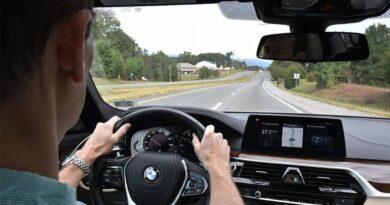Car Won’t Start But Radio Works – Common Causes & Troubleshooting Guide
Have you ever gotten into your car, turned the key, and been disappointed when nothing happened? But wait, the radio is still working! What may be the problem?
Many automobile owners deal with this issue on a regular basis. The radio may be working, but the engine will not start. This problem might become complicated when you have an important appointment.
Before you lose your mind and call a tow truck, you may try a few different approaches to fix the issue. To learn more, watch this video.
We will go over the most common issues, such dead batteries and broken starters, and offer simple, doable fixes.
Potential Reasons for a Car Not Starting:
Problems Associated with the Battery
The most common reason a car will not start is a dead or failing battery. If you think that just because the lights and radio work, your battery is in great shape, you are wrong. The battery’s functionality is not demonstrated by this observation. A dead battery is unable to maintain its charge.
It will not create enough current, but it will work. The lights and radio use very little electricity to operate. It just needs 30 amps to start up.
Compared to this, your engine needs around ten times the current to start. As a result, the power supply probably has some charge, but it might not be enough to get the car started.
Issues with Ignition Systems
Your car’s ignition system may be broken or inoperable. Verify if any of its parts, including fuses or activation switches, are damaged.
An automobile’s coil must be in perfect working order for the ignition system to operate properly, since any impairment might prevent the coil from effectively converting low voltage to high voltage.
A problem with the ignition switch may be the culprit if you find your automobile with its indicator lights on but it is unable to start or make any noises.
It might also cause the dashboard lights to flicker and remain on. Checking the fuse is essential since a blown fuse may cause the ignition switch to malfunction.
Poor connections in the wiring
You may wish to check the electrical components of the starter valve, wire connections, and all of the circuits connected to your car’s battery.
Look for any signs of corroded electrical components or dirty, defective wiring that can interfere with the car’s mechanics’ ability to function.
Additionally, check for loose wiring or connections as this may be another reason why your automobile will not start even when the lights are on.
Examining the fuse is essential since a blown fuse may result in an ignition switch problem.
Problems with the Fuel Pump
To start the engine, you need both electricity and gasoline. These are the primary components that initiate and sustain motion in the vehicle. If the electrical system is not the problem, you should check the fuel system next.
A damaged fuel pump cannot supply gasoline to the engine. The engine’s performance may deteriorate and you may hear whining when the fuel pump fails.
Steps for Troubleshooting
Examine the connections on the battery.
The most common reason a car will not start is a dead or damaged battery. Even if your radio works, it is conceivable that the battery does not have enough energy to start the engine.
To make sure the battery connectors are snug and secure, visually examine the battery terminals. If you find frayed wires or rusted connections, you might be able to determine the underlying source of the problem.
Use a wire brush to thoroughly clean them and check to see whether the issue has been fixed.
Examine the switch for ignition.
The ignition switch may be the cause if your car’s battery is completely charged and in good condition yet the engine still will not start. As the ignition switch ages, starting the car might become difficult.
Try turning on the headlights to see if it fixes the issue. If your headlights are dim or will not turn on, it is most likely an ignition switch problem.
Examine the starter motor.
The automobile may not start due to a faulty starter, although problems starting the engine may result from a worn-out or damaged starter motor.
While someone else knocks the starter with a hammer, turn the ignition key to verify this. The starting motor is most likely malfunctioning if the vehicle’s engine starts.
Examine the fuel system.
Finally, check that there is enough gasoline in the tank and that the fuel pump is functioning properly. Your engine will only start if the gasoline pump supplies it with electricity, regardless of how much power the battery has.
The Verdict
One of your car’s most intricate systems is the ignition system. For your engine to start, a lot of parts need to cooperate. Your car cannot start until all of the parts are in good operating condition. It depends on more than just a working battery.
Your battery has to be fixed even if the radio is operational. Ten times as much energy is needed to start a car as it is to turn on a radio. Weak batteries may be the main source of the difficulty you are having starting your automobile.
In addition to the reasons listed above, there are more reasons why your car could not start. These are all unique. By using the symptoms that the failing component produces, you may correctly identify it.
Once you have a precise idea of which part has to be replaced, you may begin repairing your vehicle.




